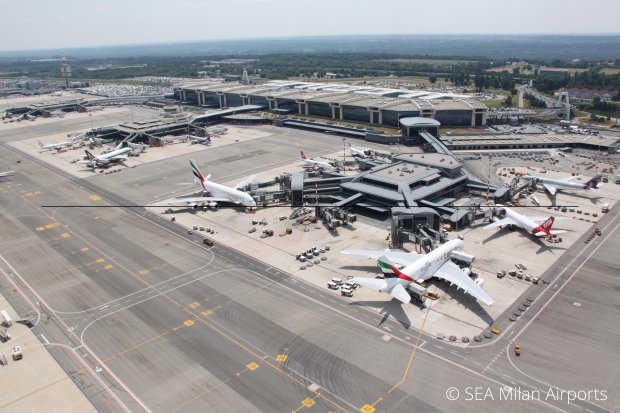SEA and ICMQ together for the ecological transition

SEA obtains the Make It Sustainable certification from ICMQ for the sustainable management processes of airport infrastructure maintenance
While on the one hand the development of skills and technology contributes to economic growth, on the other hand it contains the potential to help manage risks and threats to the sustainability of social relations and environmental and economic impacts. Innovations and new knowledge in the fields of technology, management and socio-economic policies challenge companies to make new choices about how their products, services, operations and activities impact the planet, people and economies. With this in mind, SEA and ICMQ jointly developed guidelines for the application of the Make It Sustainable Protocol to the maintenance management processes of the airport infrastructures implemented by SEA for the Milan Linate and Milan Malpensa airports.
Despite the crisis in the air transport sector due to Covid-19 which sees -73% of traffic at Milan airports in 2020, SEA has chosen not to give up its commitment to sustainability by implementing a series of efficiency actions energy and process, in particular the reduction of more than 10% of thermal energy started at the end of 2020 in the face of modulation of the plant structure of the two airports; reduction of 20% by 2026 in the Carbon Footprint of maintenance processes and finally the passage from the current 63% to 75% by 2026 in the management of waste produced, increase of the “recovery” share.
The guidelines created, for each of the essential requirements and application requirements of the Make It Sustainable protocol, identify the actions, documents and contact persons necessary to comply with the requirements of the requirement. The natural evolution of this virtuous path was the achievement of the Make It Sustainable Certification, in the context of the development and implementation of policies, strategies, processes, products and services capable of balancing one’s interest with needs and expectations. stakeholders, i.e. customers, staff, companies, authorities, communities and investors.
“Obtaining the Make it Sustainable certification of the maintenance processes represents a concrete and tangible step of SEA’s” creating shared value oriented “approach, confirmed by the full membership of the Green Building Council – declared Alessandro Fidato, Chief Operating Officer by SEA. – A model of doing business that respects extreme attention to costs, which moves from the deep awareness that the success of our doing business cannot be separated from a strong focus on stakeholders and our partners. This certification confirms the attention that SEA has towards the environment, the circular economy and human resources. This was also an opportunity to set challenging targets for the future, such as obtaining the Envision certification on the most important maintenance activities, the progressive reduction of the Carbon Footprint, both internal and linked to our suppliers, through an action of raising awareness of their value chains. Increase in the percentage of recovered waste, greater use of eco-sustainable products such as biodegradable oils, eco-labeled paints or the transition from the use of fossil fuels to electrical power systems are just examples of the guidelines on which SEA is moving”.
“Today – says Lorenzo Orsenigo, president and General Manager of ICMQ – to gradually and successfully face the challenge of innovation and ecological transition, organizations have the opportunity to enhance specific products and services, applying the principles of sustainability to the strategy, design, development, manufacture, delivery, management, communication, analysis and improvement of key processes and defining measurable, consistent and sustainable objectives. Make It Sustainable is one of these and makes it possible to measure and, if necessary, improve environmental and energy performance through the adoption of internationally recognized management systems, the use of renewable resources, the monitoring of energy consumption and the containment of environmental impacts. and consumption, adopting best practices through the involvement of stakeholders.”
For information visit: www.makeitsustainable.it
